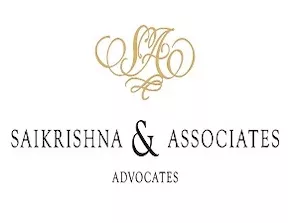Anil Kapoor, a renowned Indian actor, recently initiated legal proceedings before the Delhi High Court seeking, inter alia, protection of his own image, likeness, persona, voice, and various other attributes of his personality against unauthorized exploitation of the same on the Internet .The actor filed the suit against various entities including proprietors of commercial establishments, vendors like sellers of merchandise (posters, key chains, wallpapers etc.), domain name registrars as well as various John Doe websites. Broadly, the actor's contention was that such third parties were using his images, voice, dialogues, etc. in a manner that infringes his personality and celebrity rights, inter alia, by: (i) promoting events by publishing and collecting fee using the actor's photographs, (ii) commercial gains using images/morphed images of the actor for sale of merchandise like posters, mobile phone wallpapers, etc. (iii) capitalizing by using the actor's voice stating the titles of his films and / or his dialogues as ringtones, etc.
In the Khushwant Singh case 1, it was observed that public persons are different from a private citizen and the rules and law of privacy, the protection of which would be available to a private citizen would not be same for public figures who cannot brush their private life under the carpet. Further, the Court observed that it is not open for people to unveil the cloak of privacy or later cloak themselves when it is suited to them. Celebrity rights should be granted lesser protection than personality rights for general public.
In the present case, the Hon'ble Court held in favour of safeguarding the celebrity's rights, by granting an ex parte injunction order restraining the Defendants (including sellers, domain name registrars) from using Anil Kapoor's name, likeness, image, voice, personality or any other aspects of his persona for various forms of commercial exploitation. The Court observed that use of one's attributes inter alia likeness and personality rights is a major source of income and livelihood and therefore deserves to be accorded protection.
While, this is not the first time that the Court has granted protection for personality rights of a celebrity, it is the first time a single order has been passed against various different kinds of uses by different types of Defendants. Hence, there is scope of misuse of such an order. For instance, often, an actor's pictures are taken by the paparazzi without a license and made widely available in the public domain. Often these are also published by the actor. In general, the paparazzi does not compensate celebrities for these images; instead, celebrities often use them for indirect publicity, much like the sale of posters and photographs/wallpapers. However, the instant order may be used to restrict the paparazzi, which is otherwise widely accepted in the industry. Similarly, satirical platforms may exist for commercial gain, and may use the image / likeness of an actor to portray a certain point. As such, caution should be exercised while using such an order as precedent.
Memes and GIFs are also a popular means of communication with the growth of technology. It has also given rise to legitimate businesses that use creativity but are often using images / videos in the public domain to create memes and GIFs, without a traditional license / authorization of the celebrities. In fact, some of these are creative enough that they have also found favour with the celebrities, and are sometimes also used by celebrities for their own publicity. For example, Zeenat Aman, Amitabh Bachchan, Juhi Chawla etc., have reposted memes created by fans on their social media accounts. Therefore, a general prohibition on the creation of pop culture art, including GIFs using pictures and / or dialogues which although delivered by the actor may not even have been the actor's authorship appears to be disproportionate to the alleged harm suffered by the actor. Such a prohibition would in turn hamper free speech and expression. At this point, the observation in the Daler Mehndi case 2 regarding the delicate balance between free speech and personality rights becomes relevant.
The use of images to create AI generated porn / morphed images in porn would be a classic violation of personality rights and other laws, such as damage to reputation and goodwill. Thus, the Hon'ble Court was right in upholding that it could not turn a blind eye to such misuse and such acts are offensive and derogatory not only to the Actor but also to such third-party celebrities and actresses. However, in restraining a wide array of activities within a single order, the injunction order may also extend to transformative and creative uses of the actor's imagery / persona and is thus, open to misuse.
In conclusion, the Court's broad perspective may inadvertently lead to a surge of litigation from various entities seeking protection for uses that may not qualify the high threshold mentioned in the Khushwant Singh case or seek royalties on free speech/artistic expression, potentially burdening the legal system with frivolous cases. It is important to remember celebrities are celebrities because of the public and the right to publicity is not above the fundamental, inalienable right to free speech and profession.
To view original article link/click here
Footnotes
1. Khushwant Singh and Ors. v Maneka Gandhi MANU/DE/1012/2001
2. DM Entertainment Pvt Ltd v Baby Gift House MANU/DE/2043/2010
The content of this article is intended to provide a general guide to the subject matter. Specialist advice should be sought about your specific circumstances.


